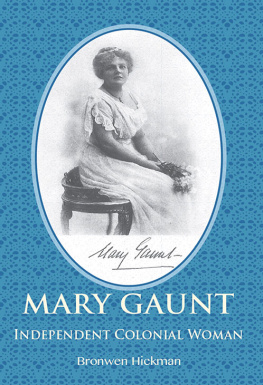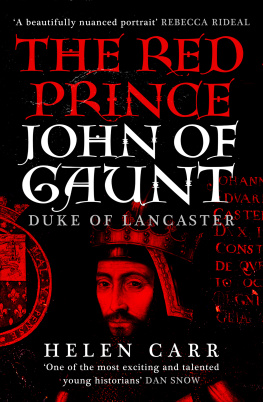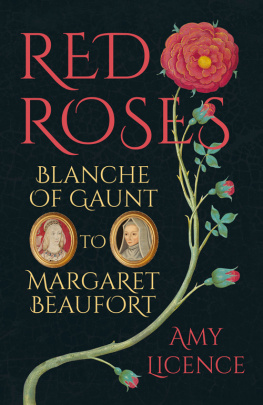William Gaunt - The Aesthetic Adventure
Here you can read online William Gaunt - The Aesthetic Adventure full text of the book (entire story) in english for free. Download pdf and epub, get meaning, cover and reviews about this ebook. City: London, England, year: 1975, publisher: Cardinal;Cape, genre: Detective and thriller. Description of the work, (preface) as well as reviews are available. Best literature library LitArk.com created for fans of good reading and offers a wide selection of genres:
Romance novel
Science fiction
Adventure
Detective
Science
History
Home and family
Prose
Art
Politics
Computer
Non-fiction
Religion
Business
Children
Humor
Choose a favorite category and find really read worthwhile books. Enjoy immersion in the world of imagination, feel the emotions of the characters or learn something new for yourself, make an fascinating discovery.

- Book:The Aesthetic Adventure
- Author:
- Publisher:Cardinal;Cape
- Genre:
- Year:1975
- City:London, England
- Rating:4 / 5
- Favourites:Add to favourites
- Your mark:
- 80
- 1
- 2
- 3
- 4
- 5
The Aesthetic Adventure: summary, description and annotation
We offer to read an annotation, description, summary or preface (depends on what the author of the book "The Aesthetic Adventure" wrote himself). If you haven't found the necessary information about the book — write in the comments, we will try to find it.
The Aesthetic Adventure — read online for free the complete book (whole text) full work
Below is the text of the book, divided by pages. System saving the place of the last page read, allows you to conveniently read the book "The Aesthetic Adventure" online for free, without having to search again every time where you left off. Put a bookmark, and you can go to the page where you finished reading at any time.
Font size:
Interval:
Bookmark:






FIRST PUBLISHED JANUARY 1945 SECOND IMPRESSION MAY 1945
JONATHAN CAPE LTD. 30 BEDFORD SQUARE, LONDON AND 91 WELLINGTON STREET WEST, TORONTO
BOOK
j PRODUCTION I
I WAR ECONOMY I
STANOM?0
THIS BOOK IS PRODUCED IN COMPLETE CONFORMITY WITH THE AUTHORIZED ECONOMY STANDARDS
PRINTED IN GREAT BRITAIN IN THE CITY OF OXFORD
AT THE ALDBN PRESS BOUND BY A. W. BAIN C CO, LTD., LONDON
CONTENTS
I A CONTINENTAL STATE OF MIND 7
II MUSTER OF FORCES
I SHIRTS AND NO SHIRTS 2O
H YANKEE AT THE COURT OF KING ARTHUR 28
III POET IN FRENZY ' 4*
IV HARD GEM-LIKE FLAME 4&
V INTENSITY IN THE DRAWING-ROOM 5 8
VI CAFE SOCIETY $3
III BATTLE
I THE TRIALS OP A PROPHET 75
II BUTTERFLY IN THE BOX 80
III AGE OF SPITE 9^
IV AESTHETICISM RAMPANT 101
V PLEASURES, SERIOUS AND OTHERWISE 124
IV DEBACLE 141
V THE AFTERMATH
I THE END OF THE END OF THE CENTURY 165
II THE DIFFICULTY OF BEING EARNEST l68 HI A REFORMED CHARACTER 172 IV IN THE DAYS OF KING EDWARD l80
VI THRESHOLD OF A NEW AGE 198 CONCLUSION 215 INDEX 219
BLUB CHINA ( WHISTLER AND CARLYLB) from a drawing by Max Beerbohm. Reproduced by the courtesy of Sir Max Beerbohm and the Trustees of the Tate Gallery Frontispiece
'BUTTERFLY* from a drawing by James McNeill Whistler. Reproduced from The Gentle Art of Making Enemies by the courtesy of Messrs. Wm. Heine-mann, Ltd. 19
DEJEUNER SUH L'HBRBB from a painting by Edouard Manet in the Muse du Louvre facing page 36'
ALGERNON CHARLES SWINBURNE from a painting by Dante Gabriel Rossetti. Reproduced by the courtesy of the Fitzwilliam Museum, Cambridge 46
'REFINEMENTS OF MODERN SPEECH* from a drawing by George du Maurier. Reproduced by the courtesy of the Proprietors of Punch 58
WHITE GIRL from a painting by James McNeill Whistler. Reproduced by the courtesy of the Trustees of the National Gallery ,, 64
NOCTURNE: BATTBRSBA BRIDGE from a painting by James McNeill Whistler. Reproduced by the courtesy of the Trustees of the Tate Gallery 80
LA TAMISE X LONDRES from a painting by Claude Monet ,, 90
'BUTTERFLY* from a drawing by James McNeill Whistler. Reproduced from The Gentle Art of Making Enemies, by the courtesy of Messrs. Wm. Heinemann, Ltd. 96
OSCAR WILDE ON HIS ARRIVAL IN AMERICA, 1882, from a photograph by Sarony. Reproduced from Oscar Wilde and the Yellow 'Nineties, by the courtesy of Harper & Brothers, New York facing page 106
GEORGE MOORE IN PARIS from a drawing by Edouard Manet 112
SALOME: L*APPARITION from a painting by Gustavc Moreau in the Muse"e du Luxembourg. Reproduced by the courtesy of The Rischgitz Studios 118
PAUL VERLAINB from a drawing by Max Beerbohm. Reproduced by the courtesy of Sir Max Beerbohm 126
AUBREY BBARDSLBY from a photograph by Frederick H. Evans. Reproduced by the courtesy of Mr. Charles B. Cochran 138
THE BYES OF HEROD, one of the illustrations to Salom, from a drawing by Aubrey Beardsley. Reproduced from The Early Work of Aubrey Beardsley by the courtesy of Messrs. John Lane The Bodley Head, Ltd. 140
OSCAR WILDE from a portrait by Henri de Toulouse-Lautrec. Reproduced
from a photograph lent by Mr. R. H. Wilenski facing page 152
THE ABBE, one of the illustrations to 'Under the Hill', from a drawing by Aubrey Beardsley. Reproduced from The Later Work of Aubrey Beardsley by the courtesy of Messrs. John Lane The Bodley Head, Ltd. 164
KATIE LAWRENCE AT GATTi's from a painting by Walter Richard Sickert. In the collection of Mr. J. B. Priestley. facing page 190
THE LAST JURY OF THE NEW ENGLISH ART CLUB AT THE DUDLEY GALLERY, 1904.
Reproduced by the courtesy of Mr. D. S. MacColl I9<*
DANSEUSB SUR LA SCENE from a painting by Edgar Degas in the Muse'e du Luxembourg. Reproduced by the courtesy of The Lefevre Gallery * 208
A Continental State of Mind
A LONG and exhausting war was over. The bloody tide of conquest had flowed across Europe, ebbed and left behind the stagnant flats of anticlimax. A ruined dictator had died, of cancer in the stomach, in the little island to which he had been exiled, far out in the Atlantic. A sick continent, shivering in the rags of ancient finery, amid the remnants of destroyed institutions, looked with gloomy surmise on the future.
This was the state of affairs when the Napoleonic campaigns were ended, and the Emperor, with dramatic finality, had disappeared from the scene. The following stages of mental reaction were spread over many years. First came a mood of depression, which affected many countries but was most strongly marked in France. The cause of that depression was to a large extent physical. France had been bled white, by the wholesale slaughter accompanying those two events of historical brilliance, the Revolution and the First Empire. When the terror had killed off the aristocracy and Napoleon had continued the work of the guillotine by squandering in battle a very large number of young and vigorous lives, the cream of the nation was twice skimmed. The unfit and the disillusioned remained, together with a middle-class, a bourgeoisie, staid, prudent, small-minded, tight-fisted, of traders and peasants who had profited by the catastrophes of the evolutionary process and become the backbone of society.
Fifteen years after the battle of Waterloo, among those who were intelligent enough to feel an emotion, despair was widespread. The splendid era which war seemed to promise while it was still in progress had not matured. The idealist found himself in a world from which ideals were conspicuously absent. The republican, after all his trouble, was mortified by the spectacle of a restored monarchy whose unreal forms and spurious titles parodied the Old Regime; and as the heads of those who would have been his patrons were cut off, the man of genius received neither sympathy nor support in this grim, post-war existence.
A CONTINENTAL STATE OF MIND
The names of those who did away with themselves or sank into an early grave, in or about the year 1830, make a distinguished list. Those who did not commit suicide or give up all hope became defiant. Defiance was at once a product of and an antidote to despair. If an idealistic revolution had come to a dull end it was still possible to express contempt for dullness and tp flout the society in which it was enshrined. The ardent spirits of 1830 thus became romantic outlaws and outlawry in due course a fashion. The intellectuals of Paris wore the steeple-crowned hats and sinister cloaks of Italian brigands and cultivated disdain for the law-abiding citizen.
The law-abiding citizen was, of course, moral; in, as it appeared to the ardent spirits, a dull, small, hateful way. If only through the necessity of opposition, it was incumbent on them, therefore, to be the propagandists of immorality or, at least, ^morality on a generous, a magnificent scale: and in 1835 there was published a book animated by precisely this purpose. It was a novel, called Mademoiselle de Maupin. It was written by an audacious young man, who hailed from Tarbes in the Pyrenees, Theophile Gautier.
Font size:
Interval:
Bookmark:
Similar books «The Aesthetic Adventure»
Look at similar books to The Aesthetic Adventure. We have selected literature similar in name and meaning in the hope of providing readers with more options to find new, interesting, not yet read works.
Discussion, reviews of the book The Aesthetic Adventure and just readers' own opinions. Leave your comments, write what you think about the work, its meaning or the main characters. Specify what exactly you liked and what you didn't like, and why you think so.







